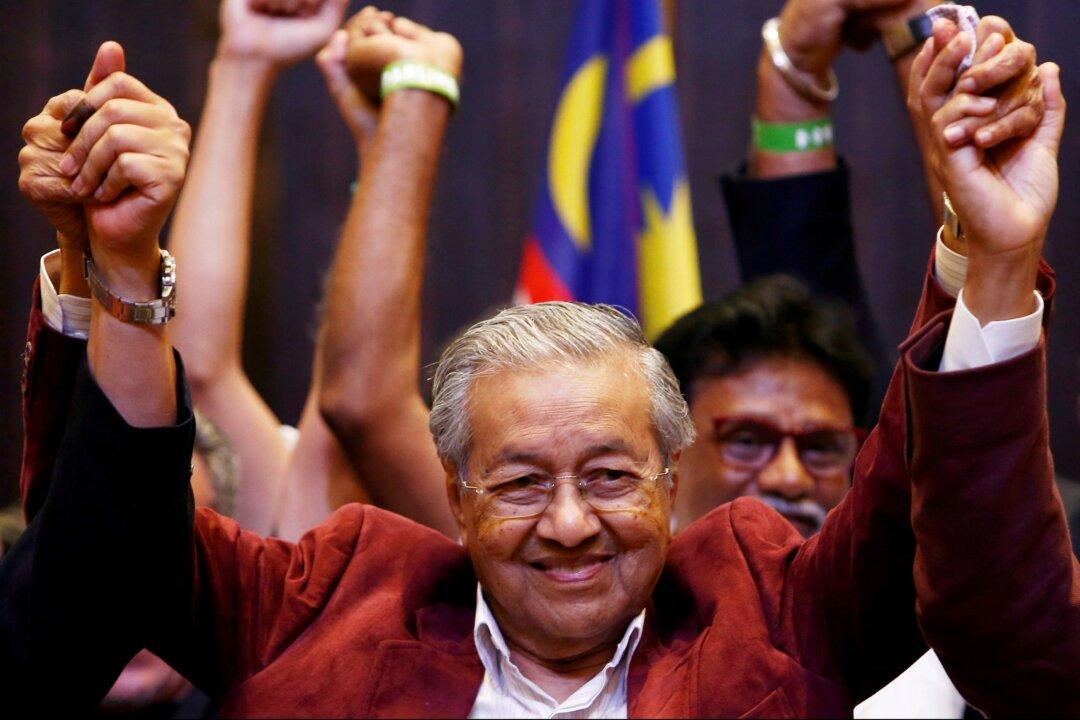KUALA LUMPUR–Mahathir Mohamad was sworn in as Malaysia’s seventh prime minister on Thursday following his stunning election victory over the Barisan Nasional (BN) coalition that has ruled the Southeast Asian nation for six decades since independence from Britain.
Malaysia’s constitutional monarch, Sultan Muhammad V, administered the oath of office just before 10 p.m. local time in a ceremony carried live on state television from the palace.





